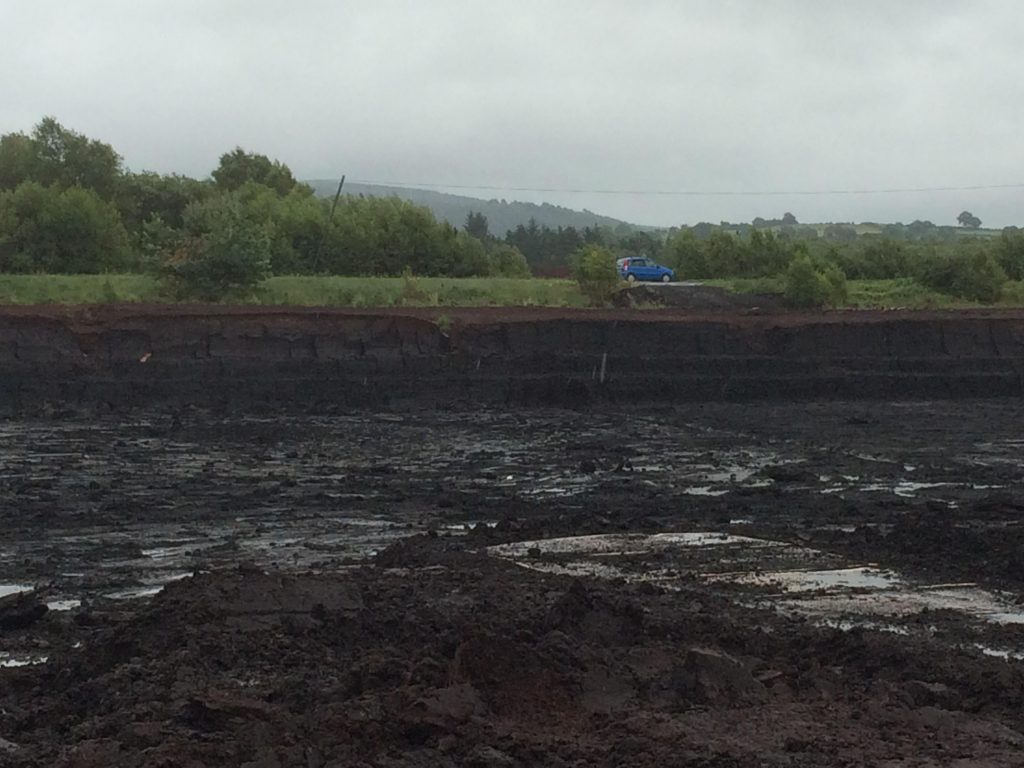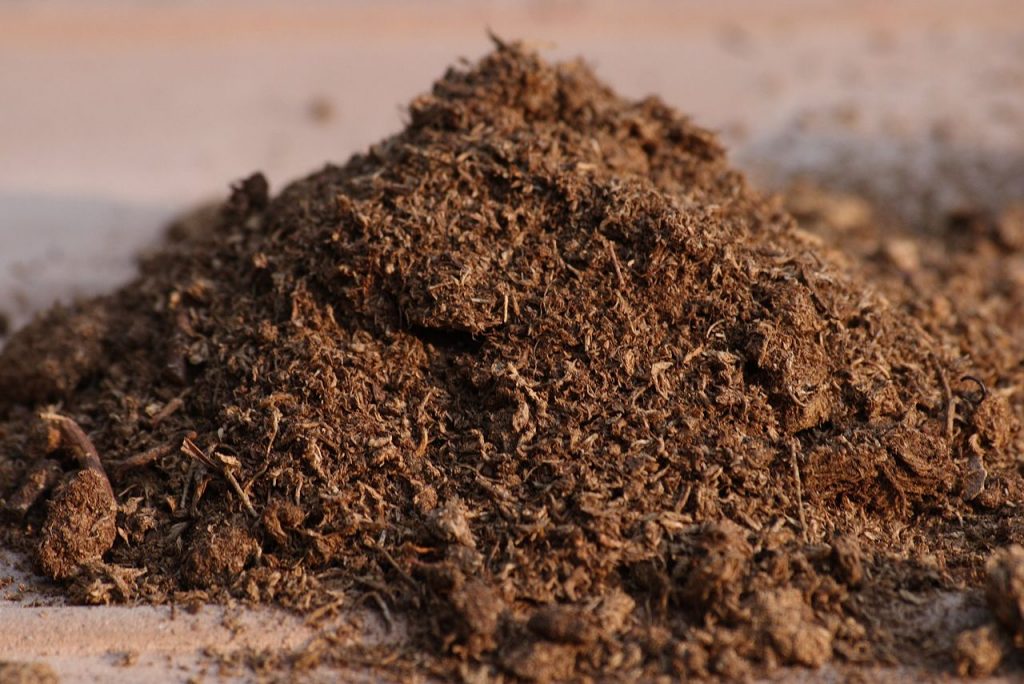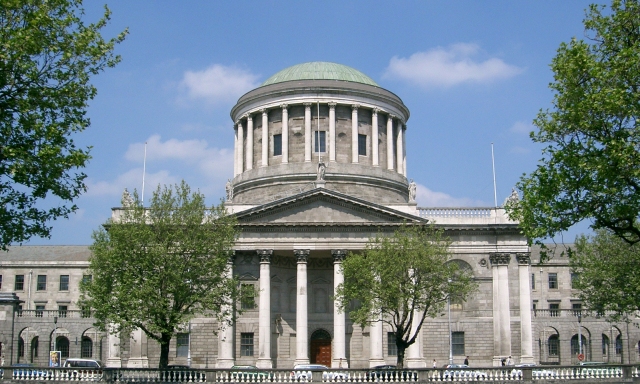EPA ‘appalled’ by level of peat extraction at Westmeath site, court hears

November 14th, 2018
An Environmental Protection Agency inspector was “appalled” upon discovering the extraction of wet peat up to five meters deep at an unlicensed Co Westmeath site, the High Court heard yesterday.
The environmental watchdog is seeking an interlocutory injunction to prevent Harte Peat from extracting peat from the Derrycrave site pending the final outcome of an ongoing court case into unregulated peat activities by the company.
Counsel for the EPA, Niamh Hyland SC, said that the agency is seeking the injunction following the discovery in September 2018 that Harte Peat is extracting wet peat on 11 hectares (ha) at the Derrycrave site.
According to Ms Hyland, Harte Peat “has no legal remit” to carry out such activity on the site for which it has no Integrated Pollution Prevention Control (IPPC) license, no planning permission and no water discharge license.
Ms Hyland said that the activity is seen by the Agency as “highly damaging to the environment” and to be causing “irreparable damage to the raised bog”.
The site also has the potential to impact Lough Derravaragh that is a protected area for the wide range of bird species that use the lake throughout the year, Ms Hyland said.
As such, the EPA “decided that it cannot wait anymore” for the ongoing case to be heard at a yet to be determined future date, she said.
Michael McDowell SC, counsel for Harte Peat, said that the EPA’s arguments contain “unsubstantiated accusations” against his client, who has harvested at the site for over 20 years.
Mr McDowell argued that the granting of the “blanket injunction” would have “serious financial implications” for his client and would “close my client’s business in its entirety.”
Such a decision, he added, would have “extreme consequences” for the mushroom industry as Harte Peat is Ireland’s largest supplier of mushroom casing on which the industry depends to grow mushrooms year-round. An injunction at this time, he said, would effectively “put them out of business” too.

Derrycrave site on 28 July 2018 Photo: Friends of the Irish Environment
‘Down to the marl’
In an affidavit from 2 October 2018 read to the court, EPA inspector John Gibbons said that he visited the site on 21 September 2018 where he witnessed a “massive intensification of the unlicensed extraction” of peat.
Mr Gibbons’ affidavit states that he was “alerted” to the issue after The Green News contacted the EPA for comment for an article on extraction at Derrycrave published on 17 September 2018.
“I visited the site as soon as I could,” Mr Gibbons affidavit reads, and “was appalled by what I saw”.
During a subsequent visit in October 2018, an affidavit from Mr Gibbons’ states that he saw live extraction “down to the level of gravel marl” where no peat was left.
Mr Gibbons said that this is a “much more aggressive and intensive” operation than normally seen on visits to peat sites.
He said that the “entire habitat has been removed” with no substrate left on which vegetation can grow back.

Canadian Sphagnum peat moss Photo: Ragesoss
‘Devastating’ for mushroom industry
In an affidavit read to the court from Sean O’Harte, the company director and operations manager said that there is “no basis for this assertion” of intensification and that there has been “no single incident of environmental pollution” identified in the past by any local or state body.
He said that an injunction would be devastating for the mushroom industry as his company is the main supplier of casings for the industry in Ireland.
In an affidavit read to the court, Monaghan Mushroom Group (MMG) founder Ronald Wilson said that the industry “relies entirely” on peat for mushroom casings and that a decision in favour of the EPA would “devastate the mushroom industry within days”.
His affidavit states that an injunction would cause “huge financial loss” to his company that has an annual turnover of over €160 million.
Ms Hyland said, however, that “such difficulties have been caused by the defendant by failing to apply for an [IPPC] license” since the company first told the EPA that it planned to do so in 2009.
“This has been going on for ten years now,” she said, adding that the “respondent cannot seek to blame the regulatory regime” for the situation it now finds itself in.

The Four Courts Building Photo: Gary Barber
Ongoing legal case
The Derrycrave site is one of several on which the EPA argues that Harte Peat is carrying out unregulated peat harvesting activities above the 50ha threshold.
Peat harvesting companies are required to obtain an IPPC licence where peat extraction is carried out in an area of land exceeding 50ha.
Peat Harte argues that the areas where it is harvesting peat are individually less than 50ha and, as such, it does not require a license.
The EPA, however, has argued that the area of land involved greatly exceeds 50 hectares when one includes all land used for the purposes of peat extraction, including access roads, storage sheds and sedimentation ponds.
The Agency also argues that the individual Harte Peat sites are within the same bogland and are thus hydraulically connected. As such, the EPA argues, all sites should be counted as one and would well exceed the 50ha threshold.
In a judgement in 2014, Ms Justice Max Barrett said that the court “struggles to believe that the man or woman in the street would consider that a business working at two bog-land sites of 26 hectares was not in truth working on 52 (i.e. 26 + 26) hectares of bogland regardless of where they are situated”.
“Thus the court concludes that if a business undertaking/entity carries out peat extraction at a number of different sites, those sites must be aggregated together for the purposes of calculating the 50ha threshold,” Mr Justice Barrett said.
Harte Peat appealed the decision and the Court of Appeal has since remitted proceedings back to the High Court for hearing.
Offer to confine activities
Prior to the commencement of proceedings yesterday, Mr McDowell said that his client was willing to “confine their activities” to just one site near Coole in Co Westmeath.
This would restrict his client’s activities to an area below 26 hectares until the court makes a determination in this “hotly contested” case, he said.
Mr Justice Charles Meenan said, however, that the injunction proceedings will “continue in the normal way” and that he would hear the EPA’s application as to the potential environmental damage caused by peat extraction at the Derrycrave site.
Proceedings will continue today at the High Court.
[x_author title=”About the Author”]







